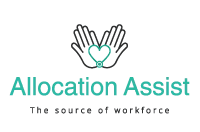[vc_row][vc_column]
-

Lifestyle and Cost of Living in Dubai 🇦🇪
- BY Saif Ullah
The main attractions for Doctors working in Dubai are the great lifestyle and ability to build up their savings with…
Read Articles -

What is Life like for Expat Women in Riyadh?
- BY Saif Ullah
Allocation Assist Middle East expanded out into Saudi Arabia’s rapidly expanding healthcare sector earlier this year, while still maintaining our…
Read Articles -

5 Common Misconceptions about Saudi Arabia
- BY Saif Ullah
Allocation Assist Middle East has branched out into Saudi Arabia’s rapidly expanding healthcare sector, while still maintaining our focus on…
Read Articles -
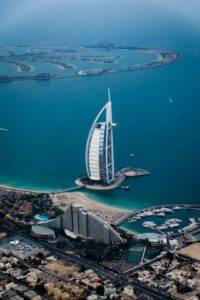
Why Invest in Property in Dubai?
- BY Emilie
Read Articles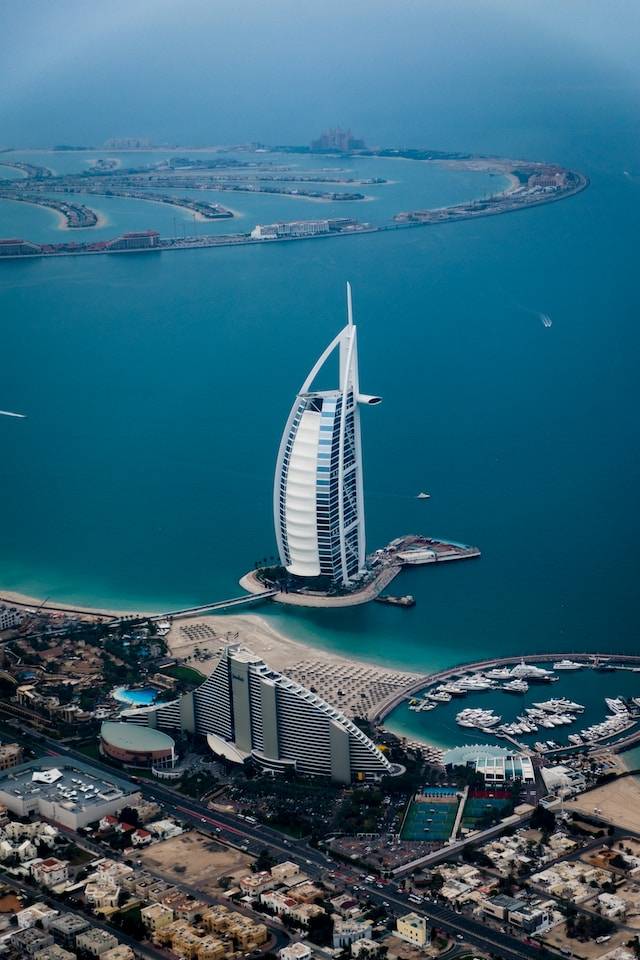
Relocating to work in Dubai offers many benefits for doctors and other healthcare professionals. A tax-free salary allows you to save more for the future. Dubai is a very international and safe city, offering a good quality of life.The booming real estate market in Dubai also offers opportunities to invest in property.
Can expats buy property in the UAE?
Yes. Foreigners can buy property in the UAE. In Dubai, there are around 50 Freehold Zones in which expats can purchase freehold properties, including the rights to the land. In other areas, only locals are permitted to own the land but expats can still buy properties with leaseholds for 50-99 years
How is the Dubai Real Estate Market in 2023?
Dubai’s economy and population is steadily growing as people are attracted to come to live and work here. The introduction of the golden visa has also attracted a lot of wealthy investors. Based on data from the Dubai Center for Statistics, Dubai’s population, currently around 3.55 million, is expected to reach 6.2 million by 2040.
Building on a strong recovery following the COVID-19 pandemic, Dubai has established its status as a safe haven for investors amidst global economic uncertainty. The UAE Dirham, tied to the value of the US dollar, is considered to be one of the most stable currencies globally.
Dubai’s location as a strategic travel hub, great infrastructure, low crime rate, and year-round sunshine make it an attractive destination for tourism, hospitality, and real estate investment. The property market is well-regulated and has been acknowledged as the most transparent among countries in the Middle East and North Africa region.
These factors have led to exponential growth in the real estate sector. Between Q3 2021 and Q3 2022, residential property prices increased by 12% and rents by 19% on average.
Leading experts’ real estate market forecasts agree that property prices in Dubai will continue to rise. According to Knight Frank Consultancy, Dubai’s Prime residential market is set for the world’s strongest growth in 2023.
What are the benefits of buying property in Dubai?
The real estate market in Dubai offers a lot of benefits, with competitive property prices and massive potential for return of investment.
In the UAE, there are no annual property taxes and no taxes on rental income. Property owners do have to pay a monthly “housing fee” or municipality tax, and a 4% fee on property sales (usually divided equally between the buyer and seller).
Many expats buy a property to live in, not only saving on rental costs but providing an investment for the future.
Buying a property to rent out can offer superior returns on investment compared to popular cities such as London or New York. Gross rental yields are currently between 6-10% with an average return of 7.5%.
By investing in an off-plan property, buyers may be able to gain from lower prices and flexible payment plans.
Property ownership can also help expats to qualify for the UAE retirement visa, introduced in 2018, allowing them to remain in the country past retirement age.
Property investment is a great way to save for future needs and retirement, potentially offering much better returns than traditional pension plans.
-

How long do Expat Doctors stay in Dubai?
- BY Emilie
Read Articles
The United Arab Emirates is one of the most attractive Middle Eastern countries for foreign citizens to relocate to. The emirate of Dubai is especially popular for healthcare professionals seeking to live and work in the UAE.
What attracts expat doctors to Dubai?
Dubai is a world-class, futuristic city that combines a progressive and tolerant outlook with a respect for preserving history and culture. Dubai is truly a melting pot of cultures with 85% of the population being expat residents from all over the world. There is no shortage of arts and cultural experiences, as well as sports events, shopping, and dining. Dubai is a safe, family-friendly city, with a wide choice of highly-rated international schools.
In a recent Expat Insider survey from InterNations, Dubai came second in the overall rankings for the best city in the world for expats. Dubai ranked highly for feeling welcome in the city, availability of services and quality of life.
The healthcare sector in the United Arab Emirates is one of the most rapidly expanding in the region, with the highest number of JCI accredited hospitals in the Middle East. There is a well-established and growing medical tourism sector in Dubai. While learning Arabic can be useful, English is widely spoken and used between people of different nationalities.
A recent survey by Expatra ranked Dubai as the top destination in the world to earn money and save for the future, helped by the fact that there is no income tax in the UAE.
Dubai’s economy and population is steadily growing as people are attracted to come to live and work here. Building on a strong recovery following the COVID-19 pandemic, Dubai has established its status as a safe haven for investors amidst global economic uncertainty. The UAE Dirham, tied to the value of the US dollar, is considered to be one of the most stable currencies globally.
How long do expats stay in Dubai?
In previous decades, Dubai was considered a place for expats to come and work a few years or more. However, a number of government reforms are now encouraging expats to stay longer and make Dubai their long-term home. A recent survey found that expats are now staying 3 times longer in Dubai on average.
What factors are encouraging expats to stay longer in Dubai?
Doctors, nurses and other healthcare professionals are among the categories of people who can apply for the 10–year Golden Visa. Other government initiatives encouraging expats to stay in Dubai include 100 per cent foreign ownership in mainland companies and relaxation of visa rules including short-term and freelance visas.
What are the benefits of the golden visa?
The Golden Visa allows holders and their immediate family to work, live and study in the country without the need for a sponsor. Golden visas are issued for 10 years and easily renewable. Previously, all expat workers’ residence visas were issued on the basis of their employment and had to be renewed every two or three years. The scheme benefits the UAE’s health sector by encouraging the best talent to remain in the Emirates long term.
Is it possible to get UAE citizenship?
Emirati citizenship, which confers naturalisation and an Emirati passport, can be granted to individuals nominated by government or royal court officials. People eligible for nomination include investors and highly skilled professionals who offer specialised talents or expertise to the country. These include foreign investors, doctors and scientists.
Doctors must be specialised in a domain that is in high-demand in the UAE, have at least 10 years of experience in their field, and be a member of specific organisations in their field of expertise. Those who have resided in the UAE for at least 30 years may also apply for Emirati citizenship under certain conditions.
In practice, obtaining UAE citizenship can be a long and difficult process and therefore most doctors opt for the Golden Visa.
Can expats buy property in Dubai?
Foreigners can buy property in the UAE. In Dubai, there are around 50 Freehold Zones in which expats can purchase freehold properties, including the rights to the land. Outside Freehold Zones, only locals are permitted to own the land but expats can still buy properties with leaseholds for 50-99 years.
Many expats buy a property to live in, not only saving on rental costs but providing an investment for the future. Buy-to-let is also a popular option, as the real estate market in Dubai offers competitive property prices and massive potential for return on investment. According to Knight Frank Consultancy, Dubai’s Prime residential market is set for the world’s strongest growth in 2023. Real estate market forecasts from leading experts agree that property prices in Dubai will continue to rise.
Is it possible to retire in Dubai?
Yes, as long as you have enough savings. In 2020, the Dubai Government introduced a new retirement visa. To apply for the retirement visa, you must be at least 55 years old and have either a monthly income of AED 15,000 or more, savings of at least 1 million AED, own an unmortgage property valued at least 2 million AED, or at least 2 million in assets split between savings and property. You also need a health insurance policy that meets the requirements for the UAE retirement visa.
Dubai is now a place where expats can build a long-term home
Dubai is considered a safe and attractive destination for expats, especially given the chance to earn a tax-free salary. New visa and residence schemes also encourage doctors and other healthcare professionals to make Dubai their home for the longer term. By saving wisely and investing in property, it is even possible to retire in Dubai.
-

Deciding between Abu Dhabi and Dubai?
- BY Emilie
Read Articles
Are you a doctor or other healthcare professional thinking of relocating to the UAE?
Maybe you are deciding whether to live and work in Dubai or Abu Dhabi. What are the differences between these two cities and which one is best for you and your family?
Abu Dhabi and Dubai are only about 140km (roughly 90 minutes by car) apart. The two cities share much in common and both offer a fantastic lifestyle for expats. In InterNations’ 2022 Expat Insider survey, Dubai ranked 2nd and Abu Dhabi 9th for best city in the world for expats.
Dubai and Abu Dhabi are also unique. Abu Dhabi, the capital city of the UAE, is situated on several islands, the majority of which are connected to each other and the mainland via roads and bridges. Further up the coastline of the UAE, Dubai is a popular tourism hub and tends to be more well-known.
How do Abu Dhabi and Dubai compare?
Population
Dubai has a larger population; currently around 3.6 million people, compared to around 1.57 million in Abu Dhabi. The populations of both cities are growing. Although Dubai is more densely populated than Abu Dhabi its population density is still far lower than most other major international cities. Both Dubai and Abu Dhabi have large proportions of expat residents compared to Emirati citizens; around 85 and 88%, respectively.
Culture
In general, Dubai is more cosmopolitan and Abu Dhabi a bit more conservative. However, both cities are very international. Dubai is an exciting and fast-paced business and tourism hub with something for everyone. While tourists do visit Abu Dhabi, it is less crowded with Western tourists than Dubai. Those looking to immerse themselves in authentic local culture may prefer Abu Dhabi. The pace of life in Abu Dhabi tends to be a bit slower, with more focus on work-life balance. Both cities are family-friendly.
Cost of Living
In Numbeo’s Cost of living index 2023, Dubai ranked 182nd, and Abu Dhabi ranked 266th, out of 540 cities. This would make it seem that Dubai is a bit more expensive, but it is not a big difference. There is no income tax anywhere in the UAE, making it possible to save more of your salary. Whether you live in Abu Dhabi or Dubai, your cost of living largely depends on your lifestyle and spending habits, with the area you choose to live in a major factor. It is generally more expensive to live in the central and coastal areas. Living further out reduces accommodation costs but may increase your commute time. It’s possible to lead an affordable or luxurious lifestyle in either city.
Schools
In Numbeo’s Cost of living index 2023, Dubai ranked 182nd, and Abu Dhabi ranked 266th, out of 540 cities. This would make it seem that Dubai is a bit more expensive, but it is not a big difference. There is no income tax anywhere in the UAE, making it possible to save more of your salary. Whether you live in Abu Dhabi or Dubai, your cost of living largely depends on your lifestyle and spending habits, with the area you choose to live in a major factor. It is generally more expensive to live in the central and coastal areas. Living further out reduces accommodation costs but may increase your commute time. It’s possible to lead an affordable or luxurious lifestyle in either city.
Places to visit and Entertainment
As the bigger city, Dubai has more entertainment options, nightlife, shopping and tourist attractions. Dubai is well known for Dubai Mall, the Burj Khalifa, Palm Jumeirah, the Atlantis resort, and much more. However, Abu Dhabi also has a lot to see and do. Yas island’s tourism and entertainment hub has theme parks including Yas Water World, Warner Bros. and Ferrari World, and you can watch Formula 1 at Yas Marina Circuit. Saadiyat Island’s cultural district is home to museums and galleries, including the iconic Louvre Abu Dhabi. Stunning architectural landmarks in Abu Dhabi include the Presidential Palace and Sheikh Zayed Grand Mosque.
Weather
The weather in Dubai and Abu Dhabi is almost the same, with year-round sunshine and minimal rain. From April to October, daytime temperatures range between 30 and 46C (86 and 115F) but there is air-conditioning almost everywhere. From around the end of October to the end of March the weather is very comfortable, with daytime temperatures between 20 and 30C (68 and 86F). The temperature rarely falls below 12C (54F) at any time.
Safety
Abu Dhabi ranked 1st and Dubai 5th in Numbeo’s 2023 Safety index that ranked 334 cities around the world. The UAE is one of the safest countries in the world due to its low crime rates.
Travel
In both cities, the most convenient way to get around is by car or taxi. Petrol is cheap and taxis are readily available with reasonable standardised fares. Both cities have good public transport networks buses, but Dubai also has the Dubai Metro, trams and water taxis. The new Ethihad Rail, linking Dubai, Abu Dhabi and other cities currently operates for freight only but will open for rail passengers in the coming years. Both cities have major international airports linking them to the rest of the world.
How to decide between Abu Dhabi and Dubai?
While Dubai and Abu Dhabi are unique cities, both are great places to live. The most important deciding factor, in most cases, will be your employment and place of work. Living and working in either Abu Dhabi or Dubai enables you to create a great lifestyle while also saving for the future.
If you are a highly skilled and motivated health professional looking to work in the UAE’s dynamic and growing healthcare sector, contact Allocation Assist today to find out how we can help you.
-

Medical Insurance Coding in Dubai
- BY Emilie
Read Articles
If you are a doctor relocating to Dubai or the wider UAE, you will need to become familiar with local medical insurance systems and regulations. In the UAE, the majority of medical treatment is paid for through insurance, as health insurance is compulsory for all residents. For Emirati cititizens, the government provides health insurance coverage within each emirate. Employers are mandated to provide insurance cover for their expat employees, and some companies also provide cover for dependents.
The amount of adjustment required to understand the medical insurance system will depend on the type of health system you have previously worked in. If you are coming from working in a National Health System, such as in the UK, you may not be used to working with insurance providers.
How do insurance reimbursement systems work in Dubai?
Medical insurance systems use the Current Procedural Terminology (CPT) code to streamline communication between providers and payers. The standardised CPT code is a globally recognised, evidenced-based system that keeps pace with modern medicine to set reimbursement levels. The CPT code enables increased efficiency through integrated digital systems, such as eClaimLink, established by Dubai Health Authority. The code is also used to support health planning and research.
In 2020, Dubai adopted the internationally recognised Diagnosis-Related Group (DRG) system for in-patient treatment. The DRG classification system groups patients with similar clinical characteristics and levels of resource consumption and uses an algorithm to calculate a standardised insurance payout to hospitals that covers all charges associated with an inpatient stay from the time of admission to discharge.
The DRG system streamlines insurance approvals and payments. It also encourages efficient use of resources by removing financial incentives, present in fee-per-service systems, to provide clinically unnecessary tests or treatment, or prolonged hospital stays.
What challenges can arise with insurance systems?
Due to the need for pre-approvals, non-emergency tests and treatments may not be able to be carried out on the same day. Pre-approvals requests are not always granted on the first attempt.
Unfortunately, many insurance policies have exclusions for congenital or genetic conditions, as well as some chronic or lifestyle related conditions.
In some cases patients with conditions not covered by their medical insurance may be able to apply for help from government registered charities or foundations.
The level of coverage does vary between insurance companies and policies. In cases where a patient’s insurance does not cover the hospital where you work, you may need to advise them where they can access treatment.
Tips for working with medical insurance companies in Dubai
- When starting at a new hospital or clinic, your employer should arrange training on the Dubai Medical Coding Manual and completing insurance applications. You can also ask for advice from colleagues.
- When completing medical notes, ensure that you document justification for any requested tests and planned treatment. This can help with insurance approvals.
- If a legitimate pre-approval request is rejected, you will need to re-apply providing more information or fresh justification on why the test or treatment is required.
- It can often be beneficial to encourage patients to call their insurance provider to emphasise the need for early approval.
- Be prepared to be patient while getting used to working with a new insurance system.
-

Career Opportunities for Physicians and Nurses and...
- BY Emilie
Read Articles
Abstract
This chapter discusses the structure of the UAE healthcare system as well as the benefits and challenges of working in the UAE for healthcare professionals. The medical licensing process is discussed in detail, providing a step-by-step guide. The healthcare sector in the United Arab Emirates is rapidly expanding, driven by the government’s vision to provide access to high quality medical services on par with international standards for all citizens, residents and an increasing number of medical tourists. The UAE authorities have developed rigorous systems to ensure that healthcare professionals who come from all over the world can be licensed to practice safely in accordance with the UAE law and international best practices. This chapter offers guidance to those considering obtaining their medical license to practice in the UAE and provides answers to frequently asked questions about the medical licensing pathways.
Keywords: Medical Licensing, United Arab Emirates, UAE Healthcare, UAE Medical Licensing, Professional Qualification Requirements (PQR), Primary Source Verification (PSV), Data Flow, Ministry of Health, Department of Health, Dubai Health Authority.
1.The healthcare system in the UAE
The healthcare sector in the United Arab Emirates is one of the most rapidly expanding in the region [1], with the highest number of JCI accredited hospitals in the GCC [2]. Remarkable growth in recent decades has been driven by the government’s vision to provide access to high quality medical services that are on par with international standards for all citizens and residents [3]. Population growth and the increasing prevalence of chronic lifestyle-related diseases, such as diabetes and obesity, are leading to increased demand for health services [3]. The UAE is also a popular medical tourism destination for patients seeking high quality, accessible medical care. The Medical Tourism Index 2020-21 ranked Dubai in 6th place, and the top destination in the Middle East, with Abu Dhabi also in 9th place [4].
The UAE is seeking to become a global leader in high-tech medical applications and digital innovation. There have been major investments in the areas of telemedicine [3], robotic-assisted surgery [5] and 3D printing techniques for surgical specialties including oncology, cardiology and orthopedics [3]. There has been significant investment in medical research and expansion of medical education in the UAE [6]. The establishment of the new Dubai Academic Health Corporation is part of the broader strategy to advance health services in Dubai by integrating healthcare, medical education and scientific research [7]. The UAE is developing its medical education and training capacity and encouraging more Emirati nationals to enter the healthcare sector. However, it still relies heavily on skilled and experienced healthcare professionals from abroad [3].
The government oversees health insurance coverage for UAE nationals within each emirate. Citizens may access free or subsidised care within either the comprehensive government-funded health service or in private hospitals covered by their insurance network [8]. Expatriate residents, who make up approximately 88% of the population [9], mainly receive care in the rapidly expanding private sector which is mostly insurance-based. In Abu Dhabi and Dubai, it is mandatory for employers to provide health insurance to their employees, although cover for their dependents varies [8].
The healthcare sector in the UAE is regulated by the Ministry of Health and Prevention (MOHAP or MOH). Healthcare facilities and healthcare professionals are regulated by the
Department of Health (DOH) in the emirate of Abu Dhabi, and Dubai Health Authority (DHA) in Dubai. Medical licensing in the Northern Emirates is regulated by the MOH.
The strength of the UAE’s healthcare sector was witnessed during the COVID-19 pandemic. The UAE authorities issued a national alert even before COVID-19 was declared as a public health emergency of international concern by the World Health Organization. Government and private healthcare sectors worked together in an efficient, coordinated response, managed by the National Crisis and Emergency Management Authority (NCEMA) [10].
2.Opportunities, benefits and challenges for healthcare professionals in the UAE
The growing healthcare sector in Dubai and the wider UAE requires additional skilled and experienced doctors, nurses and allied health professionals. There is a high demand for some specialities such as medical oncology, orthopaedics and paediatrics. The increasing prevalence of chronic diseases requires professionals skilled in the management of conditions such as cardiovascular disease and diabetes [11]. Western-trained doctors, especially those with advanced fellowships post-specialisation are sought after to bring new skills and techniques to the region.
As there is no set salary scale for doctors or other health professionals in the UAE, salaries are negotiable, depending on speciality, grade, qualifications and experience. However, salaries are often considerably higher than in the country of origin and there is no income tax. Private hospitals often offer extra performance-based or revenue sharing incentives. Although government hospitals do not offer performance-based incentives, they usually provide allowances for accommodation, children’s education, and annual flights home. Other benefits for expatriate health professionals relocating to the UAE include 30 days paid annual leave, employer-provided medical insurance, and one month salary bonus, paid at the end of employment contract, for each year worked.
In addition to financial incentives, the United Arab Emirates is an attractive location for expatriate healthcare professionals to live. Expatriates from over 200 countries make up around 88% of the total population of approximately 10 million [9]. Expat City Ranking 2021 named Dubai as the best city for expats to live and work in the Middle East, and 3rd best city globally, with Abu Dhabi the 3rd best in the Middle East and 16th globally [12]. The UAE is a strategically located travel hub where east meets west, leading to a vibrant, international and family-friendly culture. Doctors licensed by UAE health regulatory bodies can apply for a 10 year, easily renewable ‘‘Golden Visa’ as an added incentive to remain in the Emirates long term [13].
The UAE healthcare market is dynamic and competitive and those relocating may face challenges, such as adapting to a different culture and system. Doctors need to be proactive in networking and marketing in order to build their referral network and establish their patient base.
Medical licensing can be a lengthy process, depending on the country where qualifications and training were gained. As employers are seeking to fill posts quickly, it is highly advised to check specific requirements and start the licensing process as early as possible.3.Medical Licensing in the UAE
The United Arab Emirates recruits healthcare professionals from all over the world. It has developed rigorous systems for verifying identity, qualifications, skills and experience to ensure that healthcare professionals are licensed to practice safely in accordance with the UAE law and international best practices. Candidates must have a valid professional license to practice in their home country and/or country of last employment. Non-UAE Nationals must fulfill the experience requirements as set out in the PQR. The required post-qualification experience depends on the profession and grade [15].
3.1Medical Licensing Authorities in the UAE
There are 3 different authorities who regulate the licensing of medical professionals within different emirates:
- Department of Health (DOH) for Abu Dhabi (previously known as Health Authority of Abu Dhabi (HAAD))
- Dubai Health Authority (DHA) for Dubai
- Ministry of Health and Prevention (MOH or MOHAP) for all other emirates; Sharjah and Fujairah, Umm Al Quwain, Ras Al Khaimah, Ajman
For all health professionals, the process starts with creating an account with a username and password on the relevant medical licensing authority’s platform. The required documents are then uploaded for Primary Source Verification (PSV). This is the process of confirming the accuracy and authenticity of academic, professional and legal credentials, and is outsourced to DataFlow – a leading global provider of specialised PSV solutions [14].
All healthcare regulatory authorities in the UAE (DOH, DHA, MOH) comply with the same Unified Healthcare Professional Qualification Requirements (PQR) which lists the licensing titles and the requirements and specifications for each of those titles [15]. The DataFlow (PSV) report is transferable between the three licensing authorities. However, as some aspects of the licensing process and examination requirements may differ, it is advisable for an applicant to plan which emirate they wish to work in before applying for licensure with the corresponding authority.
3.2UAE Medical Licensing Pathways
1.Create a new application
Applicants need to register on the Department of Health – Abu Dhabi (DOH) [16], Dubai Health Authority (DHA) [17] or Ministry of Health (MOH) [18] website before initiating the ‘New License’ process. The DHA has a self-assessment tool that allows applicants to assess whether they meet the Unified Healthcare Professional Qualification Requirements (PQR) before starting the application [19]. Online forms must then be completed with comprehensive personal and
professional details. The requirements vary according to healthcare profession, qualifications, country of training, specialty and grade [20].
2.Upload documents, as set out by the PQR [15]. This may include but not limited to:
- Educational certificates
- Professional qualification certificates
- Recent professional and employment experience
- For dental and surgical specialties: log book for the last 2 years with hospital stamp(s) and signature of the Medical Director or other authorized person
- Valid license/registration from medical licensing body of country of recent employment
- Valid good standing certificate, not older than 6 months
- Valid Passport Copy
- Recent Photo
- Academic transcripts
3.Primary Source Verification (PSV) by DataFlow, to verify documents directly from the original or primary source, usually takes between 6 to 12 weeks. For the MOH, initial approval of the uploaded documents is required before the Primary Source Verification can start.
Once the PSV is completed, a positive Dataflow report is issued which must be linked to the DHA/DOH/MOH application. The DataFlow report can also be used for other UAE emirates and many other Gulf countries, and the verifications never expire.
4.Verification Examinations (if required)
The PQR has a tier system that recognises postgraduate qualifications and training programmes from specific countries [15]. According to the exam equivalency criteria, healthcare professionals who have successfully completed international examinations and/or hold an active registration/license to practice with certain regulatory bodies (allocated to tier 1) will be exempted from the assessment. Those allocated to tiers 2 and 3 are required to pass an assessment before obtaining a license to practice in the UAE [20]. Tier 2 trained doctors may be exempted from the required exam if they fulfill certain conditions relating to experience, seniority and research or publications [15]. Assessment exemption criteria does not apply to healthcare professionals with more than two years of gap of practice (Excluding UAE nationals and Children of Emirati women after providing the discontinuity of practice requirements) [15].
There are two types of assessment, Computer Based Testing (CBT) and oral assessment. The mode of assessment depends on the healthcare professional’s title and training [20]. Oral examinations, usually taken in the UAE, involve a panel of senior consultants from the applicant’s field asking scenario-based clinical questions, to assess their knowledge and competency. Computer based tests (CBTs), on a healthcare professional’s specialty, are outsourced to globally recognised companies: Prometric for the DHA and MOH [21, 22], and Pearson for the DOH (Abu Dhabi) [23]. They can be taken at many testing centres around the world.
Table 1: Exam Equivalency Criteria
NB. Applicants should check current requirements with the licensing authority, as these vary according to specialty and are subject to change.
Sources: Unified Healthcare Professionals Qualification Requirements (The Ministry of Health – UAE, Department of Health -Abu Dhabi, Dubai Health Authority, Sharjah Health Authority) [15].
An examination is usually not required for consultant physicians who have completed their specialist training in Austria, Australia, Belguim, Canada, Denmark, Finland, France, Germany, Iceland, Ireland, Luxembourg, Netherlands, New Zealand, Norway, Singapore, South Africa, Sweden, Switzerland, UK or USA [15].For General Practitioners, those who have completed recognised training in Australia, Canada, Ireland, New Zealand, UAE, UK or USA are exempted from the licensure examination [15].
Nurses and midwives who have completed recognised training in the following countries from taking an exam: Austria, Australia, Belguim, Canada, Denmark, Finland, France, Germany, Iceland, Ireland, Luxembourg, Netherlands, New Zealand, Norway, Singapore, South Africa, Sweden, Switzerland, UK, USA [15].
Additional equivalency criteria may be applied at the discretion of each individual authority. UAE nationals and children of Emirati women who meet the PQR requirements for the applied title are exempted from the authority examinations [15, 20].
For the DOH (Abu Dhabi), the DataFlow report must be completed before booking examinations (fig. 1). For the DHA and MOH, these exams may be booked while waiting for the DataFlow report. However, for the DHA, the DataFlow must be completed before any oral examination (figs. 2, 3). The time frame for assessments depends on the specialist panel or test centre availability.
Three attempts are allowed to pass either CBT or oral exams. Applicants may be granted one last attempt in a different authority after failing three attempts with another authority [15]. If still unsuccessful, the professional may only apply for a different speciality or a higher title with a new qualification providing they fulfill the relevant PQR criteria. [24].
1.Registration and licensing
The DHA and MOH issue a registration certificate, which can be shown to potential employers as proof of eligibility to practice in the UAE. Once the Dataflow and any examination are successfully completed, an application for registration can be submitted (figs. 2, 3). The DHA or MOH usually responds within 1-2 weeks, and may ask for additional information if required. The registration is activated into a license once the candidate successfully secures a job. Registration is valid for one year for the DHA or 5years for the MOH and can be easily renewed, provided there is no discontinuity in practice.
For the DOH (Abu Dhabi) there is no registration certificate issued. The applicant must have an employer sponsorship letter in order to complete the licensing process (fig. 1)
Once a professional obtains their license, they must comply with Continuing Medical Education (CME) requirements for their specialty in order for this to be renewed on an annual basis [15]. Physicians and dentists in surgical specialties should provide logbook(s) as a prerequisite for renewing the license [15].
Professional licensing fees are payable at different stages of the process and are subject to change. See relevant websites for the current fees [16, 17, 18].
Fig 1. Flowchart for DOH Licensing Process
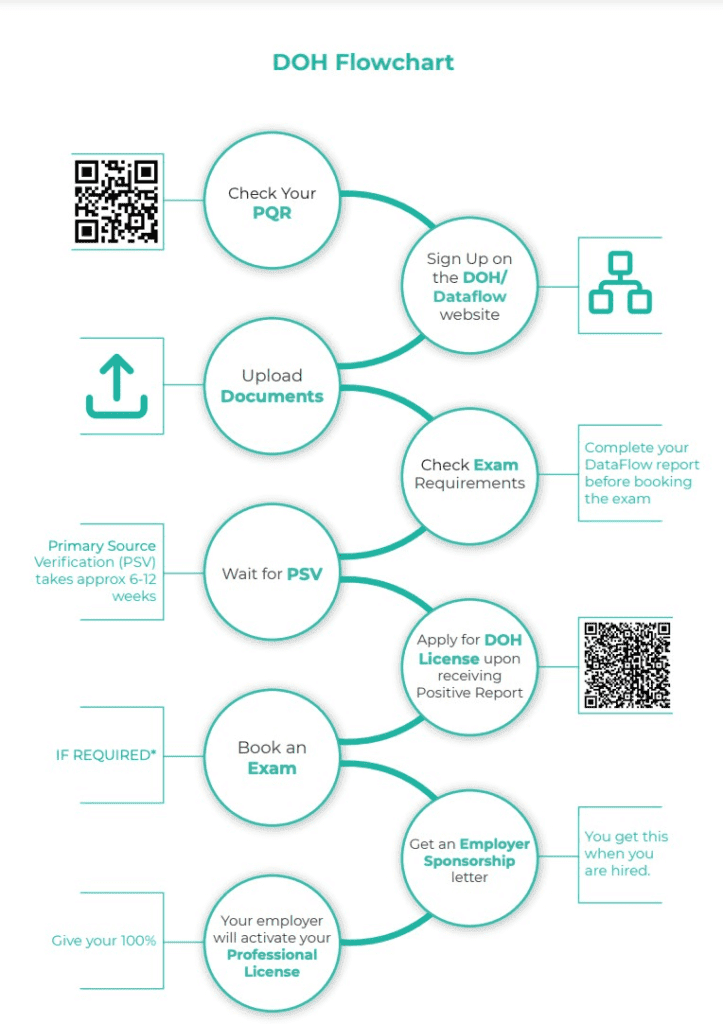
Fig 2. Flowchart for DHA Licensing Process
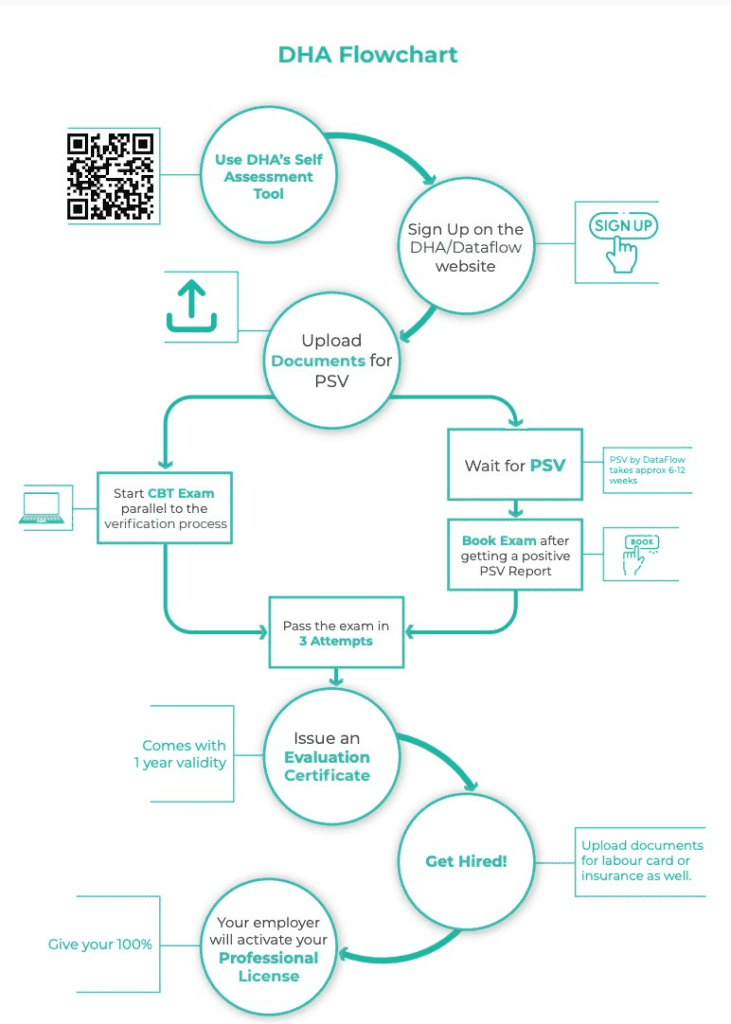
Fig 3. Flowchart for MOH Licensing Process
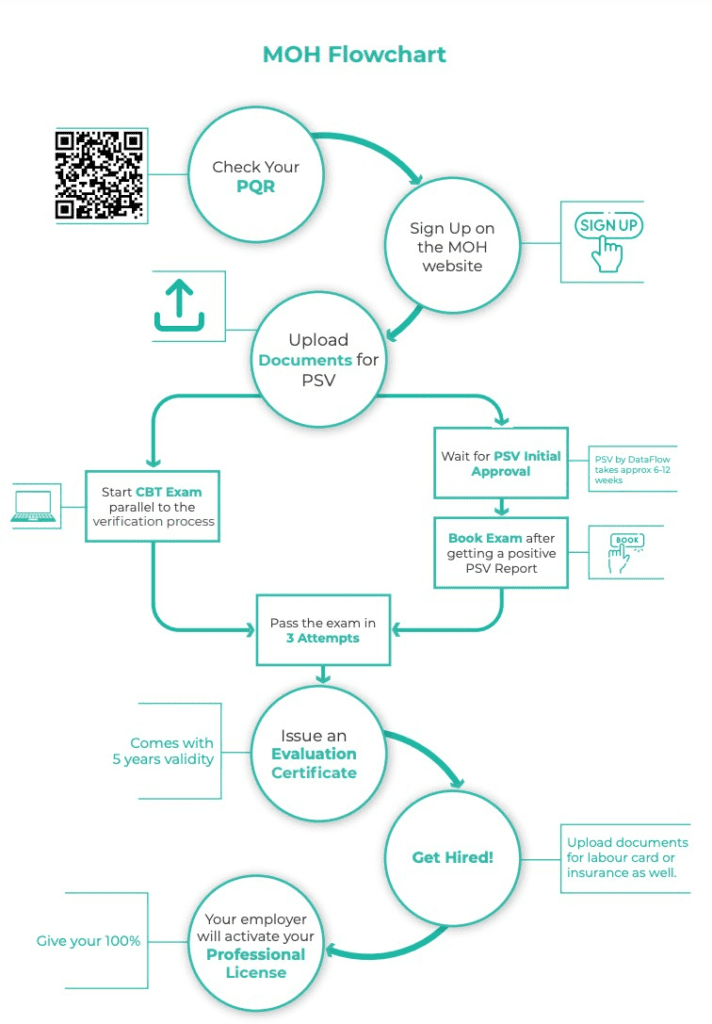
4.Frequently asked questions about the UAE medical licensing process
The time required for the licensing process can vary. Unexpected delays can occur such as requests for additional documents or issues with verifying documents in their country of origin. From past experience, professionals from tier 1 countries whose training programmes are recognised by the UAE licensing authorities, the process may take between 3 to 6 months on average. However, where examinations are required it may take up to 12 months.
The UAE healthcare recruitment market is dynamic and competitive. Hospitals looking to fill vacancies as soon as possible prefer candidates who have already proved their eligibility to work in the country. For the DHA and MOH, it is advisable to obtain your registration for applying for jobs. For the DOH – Abu Dhabi, there is no registration step before obtaining a license, but you can start the process and obtain the DataFlow report to make the licensing process quicker.
The MOH (who regulate all emirates except Abu Dhabi and Dubai) require initial approval of the uploaded documents before the Primary Source Verification by DataFlow can start.
The DOH (Abu Dhabi) sometimes asks for additional documents, such as privilege certificates, residency proof, Covid-19 vaccination card or academic transcripts.
Examination exemptions vary between the Ministry of Health, Department of Health and the Dubai Health Authority (table 1). It is also important to check the updated Professional Qualification Requirements (PQR) [15].
For the DOH (Abu Dhabi), the DataFlow report must be completed before booking assessments (fig. 1). For the DHA and MOH, these tests may be booked while waiting for the primary source
verification. However, for the DHA, the DataFlow must be completed before any oral examination (figs. 2, 3).
The DHA and MOH issue a registration certificate, which can be shown to potential employers as proof that a candidate fulfills the licensing requirements. The registration can be activated to a license once a job is secured (figs. 2, 3).
For the DOH (Abu Dhabi) there is no registration certificate issued. The applicant must have an employer sponsorship letter in order to apply for their license (fig. 1).
The licensing process is necessarily exacting with strict attention to detail. Applicants are required to be cooperative and patient. They should provide factual, accurate information to the best of their ability and must never forge, misinterpret or elaborate any details.
If you have a gap in practice exceeding 2 years, continuing medical education CME requirements must be fulfilled, and additional training may be required. In general non-UAE nationals will not be able to apply for a license if they have a gap of clinical practice for more than 5 years (and more than 10 years for UAE nationals) [15].
You are allowed 3 attempts to pass the examination. One last attempt may be granted in a different authority after failing three attempts with another authority [15]. If still unsuccessful, you may only apply for a different speciality or a higher title with a new qualification providing you fulfill the relevant PQR criteria. [24].
No. You need to apply for a DHA license to work in Dubai. However, the DataFlow report is transferable. In addition, once a healthcare professional is working for at least 6 months in the UAE, they can apply for a license with a different UAE health authority without having to repeat a licensing examination.
No. Although the Dataflow report is transferable, you need to apply individually to the licensing authority that has jurisdiction over the emirate you want to work in.
Attestation is the process of obtaining legal authentication, through a country’s embassy, for a document which has been issued in another country. This is a legal process and different from the DataFlow Primary Source Verification.
Attestation is not routinely required for the licensing process. However, it is often necessary to get documents such as professional qualifications and birth or marriage certificates attested for a UAE employment visa application. It is usually quicker and less expensive to get your documents attested in your home country, before moving to the UAE.Conclusion
There are opportunities within the dynamic and growing UAE healthcare sector for doctors, nurses and other healthcare professionals with the right qualifications, skills and experience. Even as the government’s Emiratisation strategy [26] encourages more citizens to train and work in the healthcare sector, the UAE is currently still reliant on expatriate healthcare professionals coming to work in the country. A rigorous process ensures that all credentials are thoroughly checked before a license to practice can be obtained. This exacting process can appear daunting, and requires cooperation and patience. Many candidates choose to submit their application with the help of a company with expertise in medical licensing. They can guide a candidate on the requirements, check and upload documents and follow up on the progress of the application. This support throughout the medical licensing process can save busy healthcare professionals time and stress.

Emilie Davies is the CEO and founder of Allocation Assist, a UAE Medical Recruitment and Licensing company, based in Dubai. Allocation Assist has a proven track record of connecting highly skilled doctors and other healthcare professionals with opportunities in the UAE to match their training and experience. Over the years, Allocation Assist has developed strong working relationships with the most prestigious and advanced hospitals in the UAE. Prior to founding Allocation Assist in 2015, Emilie worked as an Emergency Nurse in the NHS in London, UK. Emilie’s strengths lie in networking and building trust to establish long term relationships with high caliber Doctors and leaders in the UAE healthcare sector.
Vivienne Mendonca is a British Dental Surgeon and Professional Medical Writer, based in Dubai. After graduating from the University of Liverpool in 1998, she worked for 12 years in General Dental Practice and the NHS Community Dental Service, as well as one year in an Oral and Maxillofacial Surgery hospital department. She gained her MFDS from the Royal College of Surgeons of England in 2005 and her Master’s in Public Health with merit from the University of Liverpool in 2018. Her MPH dissertation research was published in the Cleft Palate-Craniofacial Journal in 2020. Vivienne enjoys researching and writing on a wide variety of medical and healthcare topics. Her experience of living and working in the UK, USA, India and the UAE has given her a broad insight into challenges and solutions in healthcare systems.


Abdel Rahman Abdelazim is an experienced Healthcare Licensing Manager at Allocation Assist, Dubai. Abdel recognises the need for highly skilled and experienced professionals in the UAE healthcare sector and is motivated to provide expert support to medical professionals seeking to gain their license to work in the UAE. Abdel Rahman graduated with a BSc in Zoology-Chemistry from Beni-Suef University in Egypt in 2016. He previously worked as a medical laboratory technologist and a medical representative for a pharmacy. For 3 years prior to joining Allocation Assist in December 2020, Abdel Rahman was a team leader at the Dubai Health Authority where he worked to support the Dubai healthcare system during the COVID-19 pandemic. Abdel’s strengths lie in maintaining attention to detail and keeping in contact with professionals throughout the licensing process.
-

Dubai’s Healthcare Sector Continues to Grow
- BY Emilie
Read Articles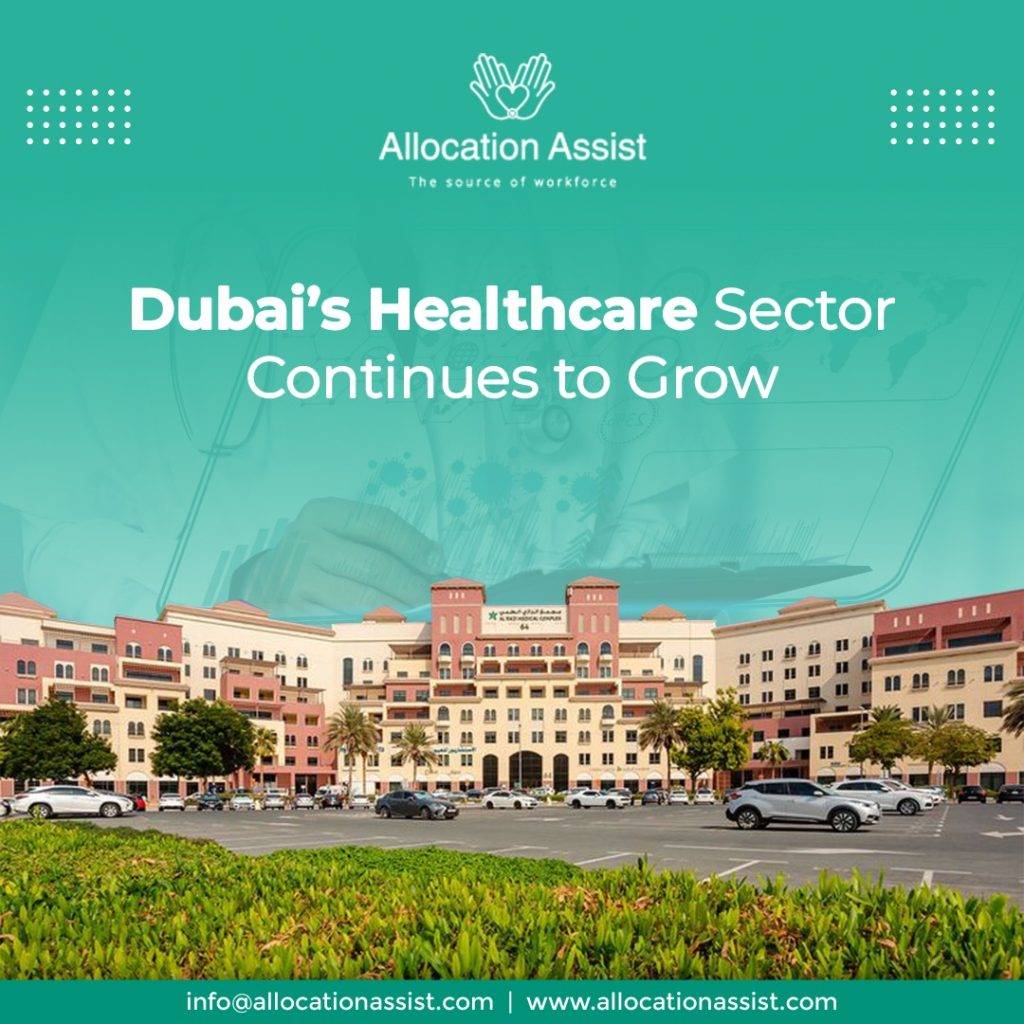
According to a recently published report by the Dubai Health Authority (DHA), a total of 143 new health facilities were licensed in Dubai in the first quarter of 2023, bringing the total number of health facilities in Dubai to 4,609, an increase of 11.5% compared to the previous year. Dubai currently has 52 hospitals, 77 specialised clinics, 58 one-day surgery centres, 82 dental clinics, 122 clinics, 1,325 pharmacies, 414 optics centres, 160 nursing homes and 57 alternative medicine centres.
Continuing growth and investment in the healthcare sector reflects Dubai’s emergence as a global healthcare destination. Dubai offers high quality care, conforming to international standards, for citizens, residents and visitors, in a full range of medical specialties and subspecialties.
The Medical Tourism Index 2020-21 which surveys destinations on criteria such as attractiveness, safety and quality of care, ranked Dubai 1st place in the Middle East and 6th in the world for medical tourism. The city saw remarkable growth in medical tourism in 2022 with 674,000 medical tourists spending Dh 992 million in the year, an increase of Dh 262 million from 2021.
The number of doctors and other healthcare professionals in Dubai is also increasing. Dubai currently has 56,239 licensed healthcare professionals. DHA’s projections for 2023 and beyond estimate a growth of 10-15 percent for medical professionals.
The UAE’s population and economy are also growing
The population of the United Arab Emirates is growing. The estimated population stands at 10.17 million in 2023, with Dubai being the emirate with the largest population at around 3.55 million. Expatriates from all over the world make up around 88.5% of the population, with the UAE remaining an attractive destination to relocate to live and work in.
The UAE’s gross domestic product (GDP) grew at 7.6 per cent last year, one of the fastest growth rates in the world. The economy has diversified into many non-oil sectors such as business, hospitality and tourism, healthcare, education, and sustainability.
Come and find out what makes Dubai and exciting place to be
There are opportunities within the dynamic and growing UAE healthcare sector for doctors, nurses and other healthcare professionals with the right qualifications, skills and experience, with some specialities particularly in demand. Western-trained doctors, especially those with advanced fellowships post-specialisation are sought after to bring new skills and techniques to the region.
Read more:
https://www.allocationassist.com/is-dubai-the-right-place-for-you/
Reference: click here
